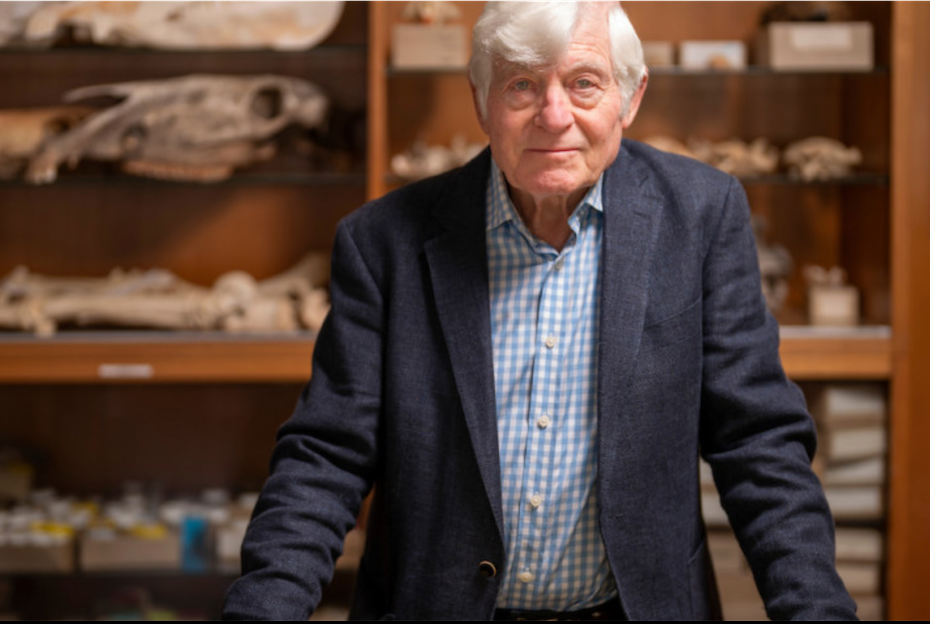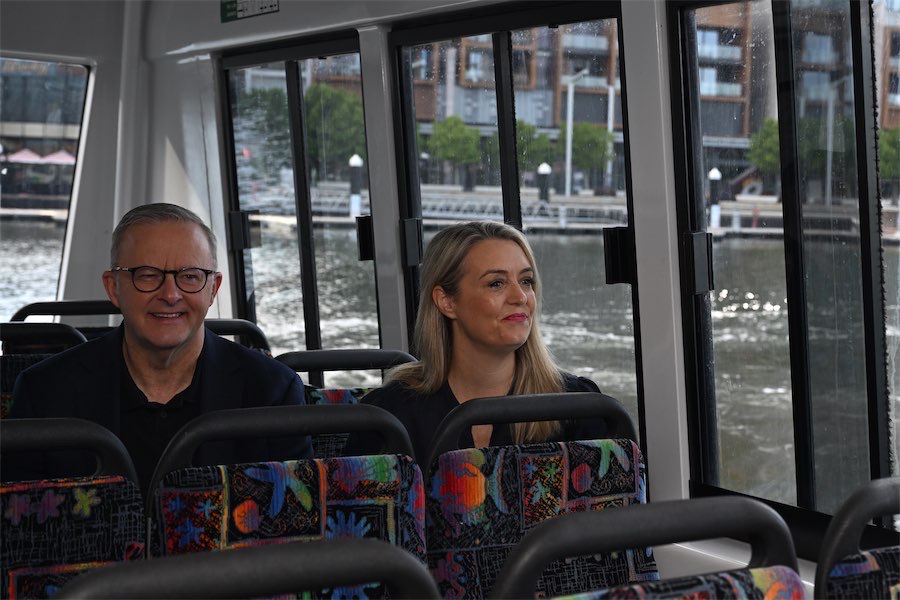
FROM uncovering Roman “treasure” as a young man, emeritus professor Dr Peter Bellwood went on to dedicate his life’s work to archaeology.
He’s been awarded the 2021 International Cosmos Prize in recognition of his work, putting him among previous winners including Dr Richard Dawkins, Sir David Attenborough and Dr Jane Goodall, but recalls fondly the time he “found buried treasure” while working for the Leicester Museum in 1962.
“It was when they were developing an area in Leicester called St Nicholas Circle, part of the Roman city,” he says.
“I was digging away in a drain and I found this gold ring. I’ll always remember it because what staggered me was, this gold ring came out of a muddy-looking drain, probably from the first or second century AD, and it was still shining. There was no tarnish on it.
“It’s with the Leicester Museum now – probably in a box in the cupboard!”
Covid restrictions mean that Prof Bellwood, based at the ANU and a fellow of the Australian Academy of the Humanities (AAH) since 1983, won’t be able to travel to Osaka, Japan, to formally receive the award just yet, but he says he’s honoured, despite being “very surprised” at first.
“Covid delayed things in 2020, of course, so I forgot all about it,” he says.
“Then I started looking at it and when I saw who’d won it before… It’s very good”.
The Cosmos Prize is awarded to contributions in understanding the relationships between humanities and nature, and Prof Bellwood was selected from 171 nominees across 31 countries. He’s the first Australian to get the prize in its 28-year history.
Prof Bellwood says he’s finishing his latest book about human population history for Princeton Press called “The Five Million Year Odyssey”, about “humans, where they come from, what they’ve been doing, and how they migrated around the world, right up to recent times”.
A migrant himself, having travelled by boat from the UK to NZ in 1967 to work as a lecturer at Auckland University, Prof Bellwood has always been fascinated by migration.
“What happened with humans, of course, is that some areas develop interesting ways of life, then when they migrate they spread it – their languages, genes and biological characteristics,” he says.
“It’s very interesting to try to work out how it happened. It goes back millions of years.”
Prof Bellwood, who completed his BA in archaeology at King’s College, Cambridge University in 1966, travelled on the “Achille Lauro” liner the following year from Southampton to Auckland.
While in Auckland, Prof Bellwood focused his research on the Polynesian Islands, specifically the Marquesas Islands and the Cook Islands, and in 1973 he was invited to join the ANU by John Mulvaney, then professor of prehistory, where he moved his research into Indonesia, Vietnam, Malaysia and the Philippines.
Prof Bellwood has been in Canberra ever since, having bought a “monocrete house” in the inner north in 1981, close to the ANU, and settling there with his wife Claudia to raise three children.
His research has contributed in two main areas: in understanding how south-east Asia and the Pacific Islands became populated, including the formation of Polynesian culture and human adaptation to island environments, and the history of farming on a worldwide scale.
“I’ve had to look beyond archaeology and read a lot of genetic and linguistic material. My work is in putting it together to understand how farming spread,” he says.
“And it did – from several homelands in the world, probably the most important in terms of the present-day population distribution was the Middle East, the Fertile Crescent as it’s known…Turkey, Israel, Jordan, Syria, Iraq.
“Another is in Central China, the Yellow and Yangtze rivers, such a huge population.
“When animals and plants are domesticated, they produce more food, which, of course, leads to population growth.”
Nowadays Prof Bellwood, 78, who retired in 2013, says he sits and writes books at home. He shows no signs of slowing down, with two more books in the pipeline after “The Five Million Year Odyssey”.
“I hope to keep on writing. I’ve always had this feeling that if you’re an archaeologist or a scientist, or discovering something, it has to be for the public good,” he says.
“Finding out about someone who lived 10,000 years ago is of no interest unless you relate it to something. Where did this person fit in the great scheme of things?
“I’d have to say that now, after all my career, I’m much more interested in the people than their archaeology… why are they there, who are there, and where did they come from?”
Who can be trusted?
In a world of spin and confusion, there’s never been a more important time to support independent journalism in Canberra.
If you trust our work online and want to enforce the power of independent voices, I invite you to make a small contribution.
Every dollar of support is invested back into our journalism to help keep citynews.com.au strong and free.
Thank you,
Ian Meikle, editor








Leave a Reply